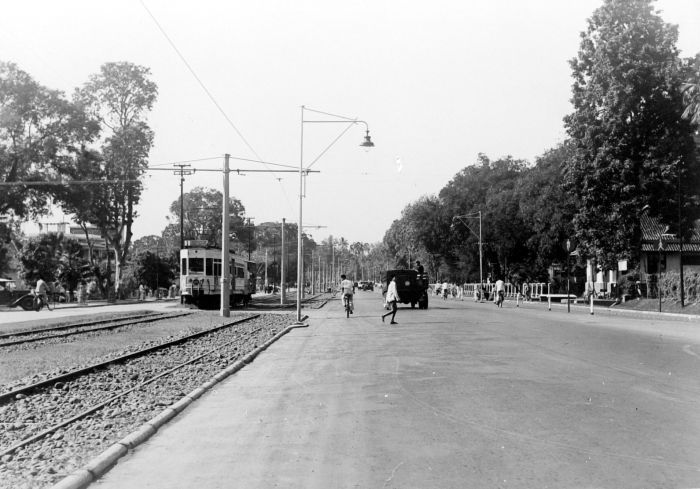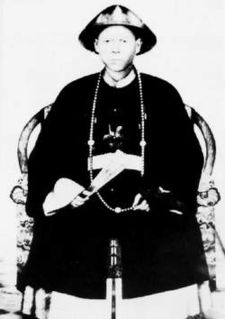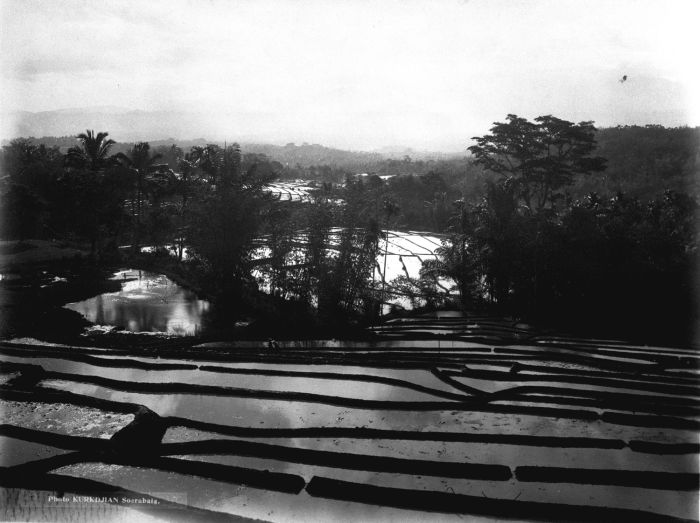|
Thung Sin Nio
Betsy Thung Sin Nio (, 22 May 1902 – 5 January 1996) was an Indonesian-Dutch women's rights activist, physician, economist and politician. Born into a wealthy and progressive ''Peranakan'' family of the 'Cabang Atas' gentry in Batavia, she was encouraged to obtain an education, which was unusual for Indonesian women at the time. After completing high school, she qualified as a bookkeeper, but – because social norms prevented women from doing office work – she became a teacher. After teaching briefly in an elementary school, in 1924 Thung enrolled at the Netherlands School of Business in Rotterdam to study economics. On graduating, she went on to earn a master's degree and a doctorate in economics. In 1932, she enrolled at the University of Amsterdam to pursue her medical studies. During her schooling in the Netherlands, Thung met Aletta Jacobs who encouraged her to become involved in the Dutch women's movement and the Association for Women's Interests and Equal Citize ... [...More Info...] [...Related Items...] OR: [Wikipedia] [Google] [Baidu] |
Tāng (surname)
Tāng (; ) is a Chinese surname. It is 72nd surname in the ''Hundred Family Surnames'' or ''Baijiaxing'' of the Song dynasty and 101st in modern popularity. The Tang (湯) family name comes from Tang of Shang, the first ruler of the Shang dynasty. Ancestry.ca In modern times the character can also mean "" or "". Notable people * (; 1550–1616), Chinese playwright * |
Jakarta
Jakarta (; , bew, Jakarte), officially the Special Capital Region of Jakarta ( id, Daerah Khusus Ibukota Jakarta) is the capital and largest city of Indonesia. Lying on the northwest coast of Java, the world's most populous island, Jakarta is the largest city in Southeast Asia and serves as the diplomatic capital of ASEAN. The city is the economic, cultural, and political centre of Indonesia. It possesses a province-level status and has a population of 10,609,681 as of mid 2021.Badan Pusat Statistik, Jakarta, 2022. Although Jakarta extends over only , and thus has the smallest area of any Indonesian province, its metropolitan area covers , which includes the satellite cities Bogor, Depok, Tangerang, South Tangerang, and Bekasi, and has an estimated population of 35 million , making it the largest urban area in Indonesia and the second-largest in the world (after Tokyo). Jakarta ranks first among the Indonesian provinces in human development index. Jakarta's busin ... [...More Info...] [...Related Items...] OR: [Wikipedia] [Google] [Baidu] |
Hua'an County
() is a county of Zhangzhou City, in the far south of Fujian province, People's Republic of China The county comprises most of the lower watershed of the Jiulong River's north branch () and has long been a transport corridor. The first rail connection to the port of Xiamen, laid during the Great Leap Forward era, came down this valley. The county seat is Huafeng (). East of there, up a tributary valley, is Xiandu town (), which features some prime examples of Tulou A tulou (), or "earthen building", is a traditional communal Hakka people residence found in Fujian, in South China, usually of a circular configuration surrounding a central shrine, and part of Hakka architecture. These vernacular structur ... and Fujian Tulou. Climate Administrative divisions Towns: *Huafeng (), Fengshan (), Shajian (), Xinxu (), Gao'an (), Xiandu () Townships: *Makeng Township (), Hulin Township (), Gaoche Township () References County-level divisions of Fujian Zhangzhou ... [...More Info...] [...Related Items...] OR: [Wikipedia] [Google] [Baidu] |
Indirect Rule
Indirect rule was a system of governance used by the British and others to control parts of their colonial empires, particularly in Africa and Asia, which was done through pre-existing indigenous power structures. Indirect rule was used by various colonial rulers: the French in Algeria and Tunisia, the Dutch in the East Indies, the Portuguese in Angola and Mozambique and the Belgians in Rwanda and Burundi. These dependencies were often called "protectorates" or "trucial states". By this system, the day-to-day government and administration of areas both small and large were left in the hands of traditional rulers, who gained prestige and the stability and protection afforded by the Pax Britannica (in the case of British territories), at the cost of losing control of their external affairs, and often of taxation, communications, and other matters, usually with a small number of European "advisors" effectively overseeing the government of large numbers of people spread over extensive ... [...More Info...] [...Related Items...] OR: [Wikipedia] [Google] [Baidu] |
Kapitan Cina
Kapitan Cina, also spelled Kapitan China or Capitan China ( en, Captain of the Chinese; ; nl, Kapitein der Chinezen), was a high-ranking government position in the civil administration of colonial Indonesia, Malaysia, Singapore, Borneo and the Philippines. Office holders exercised varying degrees of power and influence: from near-sovereign political and legal jurisdiction over local Chinese communities, to ceremonial precedence for community leaders. Corresponding posts existed for other ethnic groups, such as Kapitan Arab and Kapitan Keling for the local Arab and Indian communities respectively. Pre-colonial origin The origin of the office, under various different native titles, goes back to court positions in the precolonial states of Southeast Asia, such as the Sultanates of Malacca in the Malay peninsula, the Sultanate of Banten in Java, and the Kingdom of Siam in mainland Southeast Asia.Ooi, Keat Gin. ''Southeast Asia: A Historical Encyclopedia, From Angkor Wat to Eas ... [...More Info...] [...Related Items...] OR: [Wikipedia] [Google] [Baidu] |
Kapitein Der Chinezen
Kapitan Cina, also spelled Kapitan China or Capitan China ( en, Captain of the Chinese; ; nl, Kapitein der Chinezen), was a high-ranking government position in the civil administration of colonial Indonesia, Malaysia, Singapore, Borneo and the Philippines. Office holders exercised varying degrees of power and influence: from near-sovereign political and legal jurisdiction over local Chinese communities, to ceremonial precedence for community leaders. Corresponding posts existed for other ethnic groups, such as Kapitan Arab and Kapitan Keling for the local Arab and Indian communities respectively. Pre-colonial origin The origin of the office, under various different native titles, goes back to court positions in the precolonial states of Southeast Asia, such as the Sultanates of Malacca in the Malay peninsula, the Sultanate of Banten in Java, and the Kingdom of Siam in mainland Southeast Asia.Ooi, Keat Gin. ''Southeast Asia: A Historical Encyclopedia, From Angkor Wat to Eas ... [...More Info...] [...Related Items...] OR: [Wikipedia] [Google] [Baidu] |
List Of Kapitan Cina
This is a list of individuals who held the post of Kapitan Cina, a government position that existed in colonial Indonesia, Malaysia and Singapore. The role came with vastly varying degrees of power, depending on historical and local circumstances: from near-sovereign authority with legal, political and military powers to an honorary title for a community leader. Kapitan Cina in Hirado, Japan * Kapitan Cina Li Dan Kapitan Cina in the Residency of Batavia (Greater Jakarta, Indonesia) Hoofden der Chinezen of Batavia (Senior Heads and Chairmen of the Kong Koan) * 1619–1636: Kapitein Souw Beng Kong (formerly Kapitan Cina of Banten) * 1636-1645: Kapitein Lim Lak Ko * 1645-1663: Kapitein Phoa Beng Gan * 1663-1666: Kapitein Gan Djie * 1666-1678: Nyai Kapitein Gan Djie * 1678-1685: Kapitein Tjoa Hoan Giok * 1736-1740: Kapitein Nie Hoe Kong * 1791-1800: Kapitein Oey Bian Kong * 1800-1809: Kapitein Gouw Tjang Sie * 1809-1812: Kapitein Tan Peng Long * 1811-1817: Kapitein Ta ... [...More Info...] [...Related Items...] OR: [Wikipedia] [Google] [Baidu] |
West Java
West Java ( id, Jawa Barat, su, ᮏᮝ ᮊᮥᮜᮧᮔ᮪, romanized ''Jawa Kulon'') is a province of Indonesia on the western part of the island of Java, with its provincial capital in Bandung. West Java is bordered by the province of Banten and the country's capital region of Jakarta to the west, the Java Sea to the north, the province of Central Java to the east and the Indian Ocean to the south. With Banten, this province is the native homeland of the Sundanese people, the second-largest ethnic group in Indonesia. West Java was one of the first eight provinces of Indonesia formed following the country's independence proclamation and was later legally re-established on 14 July 1950. In 1966, the city of Jakarta was split off from West Java as a 'special capital region' (), with a status equivalent to that of a province, while in 2000 the western parts of the province were in turn split away to form a separate Banten province. Even following these split-offs, West Java is ... [...More Info...] [...Related Items...] OR: [Wikipedia] [Google] [Baidu] |
Hill Station
A hill station is a town located at a higher elevation than the nearby plain or valley. The term was used mostly in colonial Asia (particularly in India), but also in Africa (albeit rarely), for towns founded by European colonialists as refuges from the summer heat and, as Dale Kennedy observes about the Indian context, "the hill station ... was seen as an exclusive British preserve: here it was possible to render the Indian into an outsider".Kennedy, Dane. The Magic Mountains: Hill Stations and the British Raj. Berkeley: University of California Press, c1996 1996. , http://ark.cdlib.org/ark:/13030/ft396nb1sf/ In India, which has the largest number of hill stations, most are situated at an altitude of approximately . History Nandi Hills is a hill station in Karnataka, India which was developed by Ganga Dynasty in 11th century. It was also used by Tipu Sultan (1751 - 1799) as a summer retreat. Hill stations in British India were established for a variety of reasons. One ... [...More Info...] [...Related Items...] OR: [Wikipedia] [Google] [Baidu] |
Bogor
Bogor ( su, , nl, Buitenzorg) is a city in the West Java province, Indonesia. Located around south of the national capital of Jakarta, Bogor is the 6th largest city in the Jakarta metropolitan area and the 14th overall nationwide. Estimasi Penduduk Menurut Umur Tunggal Dan Jenis Kelamin 2014 Kementerian Kesehatan The city covers an area of 118.50 km2, and it had a population of 950,334 in the 2010 Census and 1,043,070 in the 2020 Census.Badan Pusat Statistik, Jakarta, 2021. The official estimate for mid 2022 is 1,099,422. Bogor is an important economic, scientific, cultural, and tourist center, as well as a mountain resort. During the |
China
China, officially the People's Republic of China (PRC), is a country in East Asia. It is the world's most populous country, with a population exceeding 1.4 billion, slightly ahead of India. China spans the equivalent of five time zones and borders fourteen countries by land, the most of any country in the world, tied with Russia. Covering an area of approximately , it is the world's third largest country by total land area. The country consists of 22 provinces, five autonomous regions, four municipalities, and two Special Administrative Regions (Hong Kong and Macau). The national capital is Beijing, and the most populous city and financial center is Shanghai. Modern Chinese trace their origins to a cradle of civilization in the fertile basin of the Yellow River in the North China Plain. The semi-legendary Xia dynasty in the 21st century BCE and the well-attested Shang and Zhou dynasties developed a bureaucratic political system to serve hereditary monarchies, or dyna ... [...More Info...] [...Related Items...] OR: [Wikipedia] [Google] [Baidu] |
Order Of Orange-Nassau
The Order of Orange-Nassau ( nl, Orde van Oranje-Nassau, links=no) is a civil and military Dutch order of chivalry founded on 4 April 1892 by the queen regent, Emma of the Netherlands. The order is a chivalric order open to "everyone who has performed acts of special merits for society.” These are people who deserve appreciation and recognition from society for the special way in which they have carried out their activities. Titles, prefixes, or post-nominals are not used in the Netherlands – the only exception being the Military William Order. History In 1841 William II of the Netherlands, as Grand Duke of Luxembourg, created the Order of the Oak Crown. Although this was officially not a Dutch order, honours were regularly conferred on Dutch people. After the death of William III, Luxembourg, according to the Nassau Family Pact, became the domain of the other branch of the House of Nassau. In the Netherlands the need for a third order, beside the Military William O ... [...More Info...] [...Related Items...] OR: [Wikipedia] [Google] [Baidu] |





